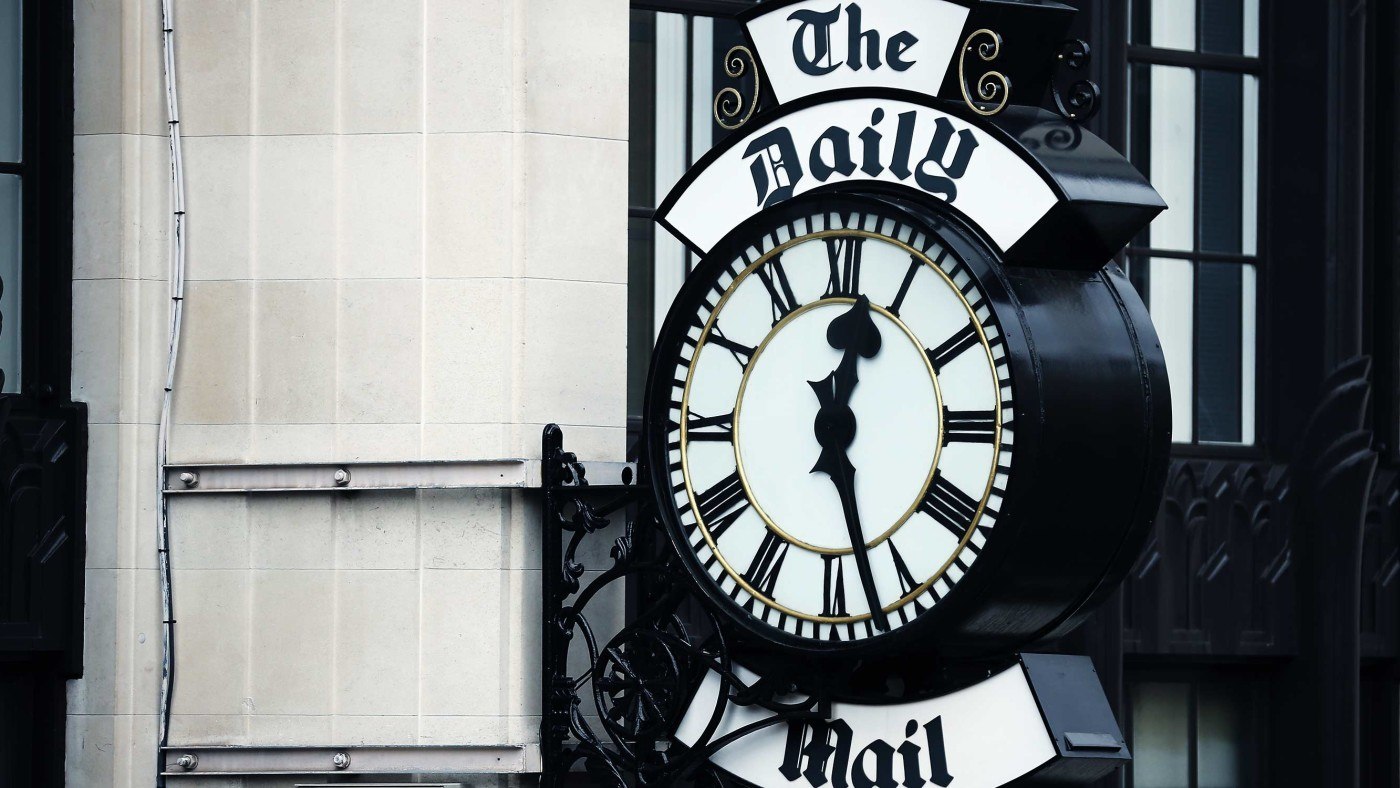Intelligence Squared Debate: The Trouble with this country is the Daily Mail
Chair: Kamal Ahmed (Economics Editor of BBC News)
For: Reverend Richard Coles (Presenter of the Radio 4 show Saturday Live), Zoe Williams (Regular columnist for the Guardian and New Statesman)
Against: Roger Alton (Former editor of The Independent and The Observer and executive editor of The Times), Peter Oborne (Political columnist on the Daily Mail)
It is no secret that the heyday of Fleet Street is over, with the continuing evolution of technology that will soon outstrip any other medium. That the Daily Mail remains indefatigable against such a backdrop is impressive. It is not enough to be sensationalist, there are many other outlets who do that; there is a well-crafted formula driven by formidable editors who manage to encapsulate the contemporary mood and symbiotically deliver readable stories alongside towering campaigns. However, the paper’s historic approach to marginalised groups and particularly its stance on immigration continue to upset as many as they have entertained. So does the Daily Mail reflect or create the problems with modern Britain? I headed to the Royal Geographical Society to hear some of the country’s top journalists battle it out. Sadly, all four of them disappointed.
A motion of this kind was always bound to be fraught. The panel played their chosen parts to practiced perfection, with appropriate disdain being ladled out to each side – one team inflammatory racists, the other freedom-crushing thought police. Perhaps the issue was the wording: one hoped that we would be able to avoid the obvious Voltaire missives, but inevitably any criticism of the paper was positioned as an attack on the ‘everyman’ reader, which no one could quite define.
From the outset both sides tried to claim that mythical figure of the ‘Middle Englander’ as their own. Peter Oborne and Roger Alton were keen to frame it as a class issue, the liberal elite’s natural tendency to despise that most hated sector of society, the lower middle class, whom they and their paper championed. To a predictable mass inhalation, Alton described the paper as ‘ferociously moral’. He held fast to the notion that, unlike other papers who ‘write for each other’, the Daily Mail wrote for its readers (often to the intellectual detriment of the writers, as Oborne wryly noted) and spoke up for traditional views on family values, the welfare state and immigration. None of this meant it was racist, simply fearless, it had no issue with advertisers and was not to be seen colluding with politicians.
This is where the argument was possibly lost. Had Alton and Oborne admitted to the sensationalism which so obviously pervades their paper (as the wonderful Chair, Kamal Ahmed put it, it reads as though ‘the caps lock is permanently on’), they could have made a convincing argument for populism and breadth of coverage. Instead, they defended the Mail’s history by pointing out that they ‘were not the only paper at the time’ to be writing in such a way, and ended up sounding worryingly similar to the politicians they criticise.
Sadly, those arguing in favour of the motion missed their chance to point this out, and focussed instead on disagreeing with the portrayal of the average English reader. Reverend Richard Coles spent his time attempting to redefine the Middle Englander by putting himself in the mould, complete with heart-warming story of his ordinary upbringing, with a shoe manufacturer for a father. He brought his parishioners into the debate, but refused to accept that he saw in them the bile that the paper reflects. Aside from that, he pointed to several dark, historical moments for the Daily Mail, notable Jan Moir’s piece on the death of Stephen Gately, along with the general demonization of homosexuals during the 1980s. His argument was that though that may not be the paper’s line now, it still targets groups who are struggling to accept themselves and whose further vilification by a national broadsheet prevents them from being understood. But his speech was too sentimental and anecdotal to have much of an impact.
Zoe Williams did a slightly better job of bringing the debate into a more academic sphere, by stating that the issue was that the Daily Mail frames the problems of Britain as being the fault of things which it is not. Peter Oborne hurriedly jibed that he was not at all anti-immigration, but his one opinion is not the point. (Oborne is well known for the firm stance that he took at the Telegraph and clearly possesses his own personally sharp principles, which does make one wonder if he reads outside of his own column.) Whilst those who write it may take a more holistic approach to the deeper structural problems of the country that are preventing ordinary people on normal wages from a less miserable quality of life, the Daily Mail is happy to use hyperbolic headlines and selective data to point the blame at the latest scapegoat. Williams derided this obsession with the ‘hyper fertile, congenitally idle immigrant’. Yet she failed to reconcile this with the reality that, contrary to evidence, such fear does exist among the population of Britain.
Ultimately the motion was carried 51% to 48%, with a swing of just 5% for those against. Such an unsatisfying outcome typified the evening. Neither side had broken out of what one had expected them to be: Alton had spoken about ‘women’ as though they were a specific category of biscuit which could be eternally reproduced to consume stories on health and fashion, and Coles waned on about his parishioners in a way that was reminiscent of the misguided sheep of Blake’s deepest fantasies. So, is the Daily Mail inciting anger and preventing meaningful discussion? Or is it a bastion in the fight for freedom of expression? We were left no closer to an answer, except that everyone reads it, whether we like it or not.


